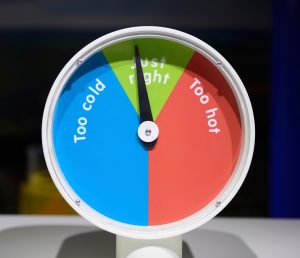As the winter draws to a close, you probably have a good idea of how well your heating system did over the winter. Was its performance lackluster? Do you suspect that the need for a replacement is in your home’s near future?
Although planning to replace your heating system can be a daunting task, the good news is that there are a lot of options when it comes to heating your home. Dual fuel systems in Nashville, TN could provide the perfect solution to your home comfort. Read on to learn more about these remarkable systems
What is a dual fuel system?
A dual fuel system, also referred to as a hybrid heat dual fuel system, is a centralized heating system that uses two different fuel sources. It reacts to the changing conditions in your home and provides the most energy-efficient operation possible.
Dual fuel heating systems consist of an electric heat pump and a gas furnace. They alternate between their respective fuel sources to generate heat. With a dual fuel system, you’ll reap the advantages of both types of systems and eliminate many of the drawbacks associated with each.
The heat is distributed via a system of ducts. The heat pump portion of the system is electrical and works through the summer for air conditioning and during much of the heating season. When the temperature drops low enough and the heat pump struggles, the gas furnace portion takes over. Here are some pros and cons of a dual fuel heating system for your home.
Pros:
- They provide superior heating. If a heat pump isn’t enough to keep your home warm during the winter, the gas furnace kicks in to keep your home warm and toasty. When the weather isn’t as cold, it’ll rely on the heat pump with no issues.
- They supply backup heating. You’ll have peace of mind knowing you have two options for heating should one or the other fail. If the heat pump fails, the furnace will be able to heat your home. If the furnace fails, the heat pump can supply the heat your home needs.
- They’re efficient. Dual fuel systems are highly efficient for those who want an eco-friendly option. That’s because heat pumps don’t burn fuel, they pull heat from the outside air and bring it into your home.
Cons:
- They need more maintenance. While a traditional heating or cooling system needs this service once a year, a heat pump should be professionally maintained twice a year since it is used twice as much.
- They cost more upfront. Your initial upfront cost for a dual fuel system will be more but you’ll reap the benefits of paying less for utilities over the lifespan of the system.
- They take up space. Although the heat pump and furnace will use the same ductwork, the system will have multiple parts: the heat pump, the outside unit, and the furnace.
At Covenant Heating and Cooling, we are “Dedicated to the Promise of Serving You.” Contact us today for a dual fuel system installation.

